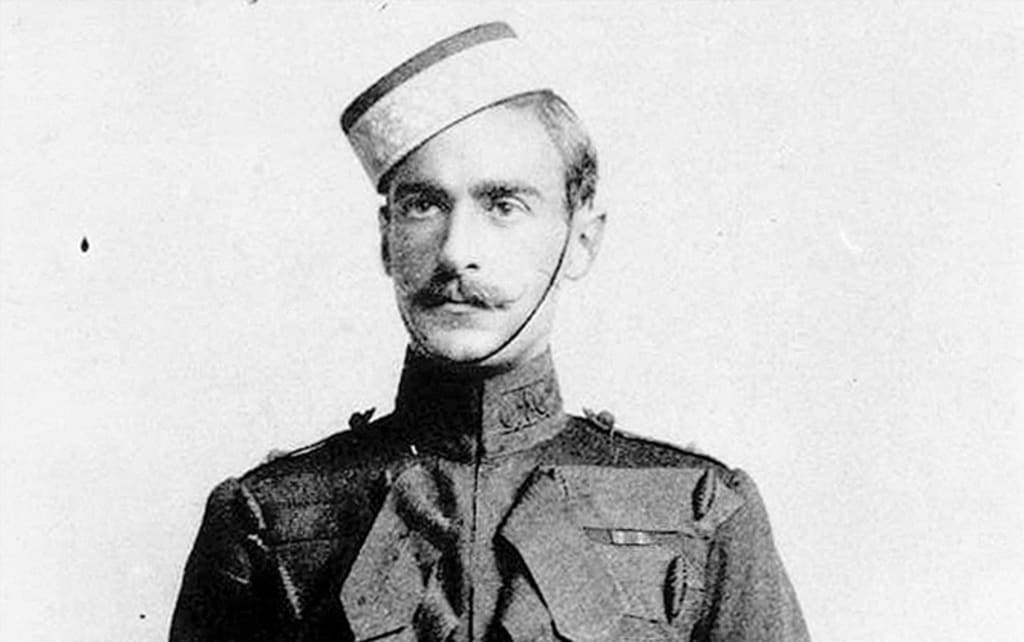INDIA&PAKISTAN
This is the Golden Temple. People come here from all over the world to bathe in its waters, to look at the Holy Book that is inside of this middle Golden Temple and to just experience the holiness of this place. This place is the epicenter of Sikhism. It sits right here in northern India in a city called Amritsar. Close by there's another important Sikh site called It was established by the founder of Sikhism more than 500 years ago. It's the place where he spent the last years of his life and it is the second holiest place in Sikhism. For centuries, Sikhs have been able to make pilgrimage between these two sites to move freely throughout their heartland. But in 1947 a British lawyer drew a border here turning what had been British India into two new countries, India and Pakistan. I could only call it one of the most bizarre lines, which were ever drawn across a map It went right here with the Golden Temple on one side and Katarpur on the other. Thanks to this border Sikhs in India are now cut off from their holy site. So many come here to a platform that the Border Patrol set up. The platform looks across the border where with the help of telescopes, Sikhs can look at their holy place just three or four kilometers away. In addition to cutting off communities from their sacred sites, this border separated families, cut across rivers, forests, farms, railroad tracks. Today this border is heavily fortified with nearly all 3,000, plus kilometers fenced. It's lit so well that you can see it from space and barely anything or anyone crosses over it When we talk about the drawing of the line, what was the most painful was the division of families which took place and that is a very big reality. This is the story of a violent separation. One of the most traumatic events of the 20th century It's the story of how a hastily drawn line on a map separated one people into two. This is a horror story. What we saw was a town soaked with the stench of death. In the train of murder and arson, come the refugees. Their suffering is the new tragedy of India. Many will never reach their new land. These are the things that are setting the heart burning on either side of the line. The sun is setting and I'm walking along one of the oldest roads in Asia One that used to connect this region but today a border runs through it and instead of connection and trade what you see here is this: There's barbed wire, there's fences, there are officers everywhere and yet, there's also ice-cream and popcorn and paraphernalia. This feels like a sporting event. You can buy keychains of machine guns. Thousands of spectators file in, filling this stadium that looks down on the border. On the other side Pakistanis are doing the same. Then, both sides start their different show. Two hours of chanting and dancing Then the finale, a face-off between the two sides. They strut back and forth in this coordinated choreography and it all ends with the lowering of each flag and the closing of this gate. This bizarre border show plays out every evening. But this ceremony, this fence, this intense nationalism If you rewind just a little in time, none of this existed. The British controlled parts of India for nearly 200 years but by 1947, a strong movement of independence was swelling across the subcontinent while back in Britain, the country was in massive debt after fighting World War II and didn't have the resources to hold on to their colony so they started making plans to leave India. British officials thought that a proper transfer of power would probably take around five years but when the British leader in charge arrived in early 1947, he hastily decided to shrink their exit timeline and so what needed five years would now need to be done in just four months. British India was to be split into two independent nations, a mostly Muslim Pakistan and a Hindu majority, but officially secular India. To do the actual drawing of the border, the British brought in a lawyer from London. He arrived the month before the British were supposed to leave India. He hadn't been to British India before and didn't know much about the region. He had no idea about India, no idea about Indian geography, no idea about Indian politics. And yet, he was the one drawing the lines on the map that would affect millions of lives. During his visit, this British lawyer looked at maps and census data, focusing on the maps that showed religious identity of people in India. India has a wide variety of religions and based on these census maps, you can see that people of all religions lived amongst each other all over the region. So to draw the line the British lawyer looked at individual districts putting any district that had a Muslim majority population into the new country of Pakistan, while Hindu and Sikh majority districts would be kept within India. Based on this method the lawyer began to see what a border might look like. He only had five weeks to do this. He later wrote that it would have taken years to settle on a proper boundary and that's because this method of drawing the line conceals that within these districts there were sizable communities of all religions that had been living side-by-side for centuries all throughout India. August 15 1947, Independence Day for India and Pakistan The British lawyer left that day. He would never return to India again. Two days after independence the borders were made public, prompting more than 14 million people to leave their homes, their lives for what was now their side of the border. We were told that you have to cross the border to India. Hindus and Sikhs from Pakistan moved into India and many Muslims in India moved into the new Pakistan. These were people who were indeed forced to lose their entire homes, their memories, their childhood and the things they saw. It was one of the largest forced migrations of people ever and it was chaos, a chaos that led to widespread unspeakable violence cities on fire, sexual violence against women, trains, full of dead bodies. The survivors I talked to were just children when all of this happened. The division of the sub-continent became known as the partition of India. A phrase synonymous with trauma fueled by the reckless mismanagement of an imperial power. I'm in a small village right near the border on the Indian side that used to be a Muslim community before partition. And in the middle of town is this shrine where residents would conduct ornate Muslim burial practices on these graves. Look at the original maps at the British drew up when they were trying to draw this line. This town was actually in Pakistan in most of the maps. But in the end the British lawyer decided to draw the line here. The people here discovered that they were now a part of the new country of India and so many of them fled just across the border to the new state of Pakistan and they left this place empty. But just as Muslims were leaving this village for the new Pakistan, Hindus and Sikhs from Pakistan were coming across into India and some ended up here. The Hindus and Sikhs that now live in this community have taken it upon themselves to continue the Muslim traditions that this community was based off of. They continue to maintain these graves and these symbols even though they don't necessarily pertain to their own religion. This is a sign of respect, of common identity in spite of the border. But this is just one side of the story. The sub-continent echoes and shudders to the sounds of a full-scale undeclared war. Within just a few months of drawing this border, India and Pakistan were fighting an all-out war. One that centered on this region in the north, which both sides claimed as their own. The new countries would fight several more wars over the years, a border fence would eventually fortify the majority of this boundary, and both countries would acquire nuclear weapons turning up the tensions and deepening the division. But if you take away the geopolitical bluster, the nukes, the barrier, the trauma of partition, you can still see how much these two countries have in common. I'm at a school in Delhi. Students are skyping with a school in Pakistan. These kids are speaking a similar language and it takes them just minutes to dive into the common roots of their culture. This shared identity with these kids are feeling isn't uncommon in India and Pakistan. Same language, same taste, same food Hindus and Muslims and Sikhs used to live together, attend each other's social functions, marriages, everything. We have this divide now. If you stand in the wall city in Amritsar and you stand in the walled city in Lahore believe me, the smells, which is a kind of giveaway are the same. I'm visiting a group of Sikhs coming off the train. They were able to get a visa to go visit this religious site that most have to see through a telescope. So with all these cultural similarities, all these happy faces, shared interests? How do you explain this? You see, it is a politician, who poisons people's minds. The divide is created, nurtured, fostered because it suits a certain politics. Over the years, politicians on both sides have exploited tension with the other side to stoke feelings of nationalism. Back here at this viewing platform, there are construction vehicles everywhere. For years, the Sikhs have lobbied for easier access to their holy site and after years the two governments finally agreed to build a little notch into this border, a corridor that will allow Sikhs to freely access their site without a visa. These four kilometers will restore a small part of what was once the Sikh heartland. But for millions of Indians and Pakistanis who continue to live with the repercussions of the traumatic events of 1947, this fortified and volatile border remains unchanged. If anything, it's getting thicker. Seventy years later, the shadow of partition continues to divide families, halt trade, cut connection, stop cooperation, instill fear, promote hatred and the people who live in its shadow on both sides, old and young, continue to live with this division that's superimposed upon their history of deep connection.







Comments
There are no comments for this story
Be the first to respond and start the conversation.